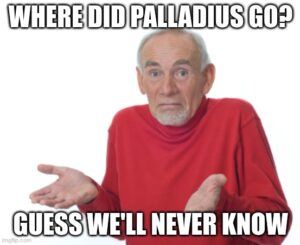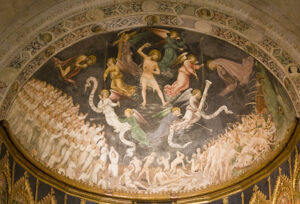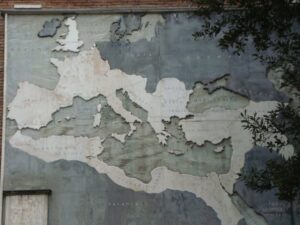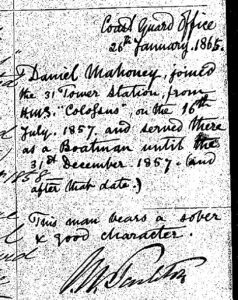As we celebrate fifty shades of green and celebrate the most famous of Ireland’s patron saints, it seems only fitting to go back and look at what we know about Patrick himself.
Stripping away centuries of myth and miracle, shamrock teachings and banishings of snakes, we can look at him through the lens of his own writings. They are the earliest extant texts from Ireland and there are two: His Confession, and a letter he wrote excoriating the soldiers of a man called Coroticus after the soldiers killed people who had just been baptised.
Much of what is taught about Patrick came from a narrative driven by Armagh in a sort of ecclesiastical and propaganda coup, and is best articulated in Muirchu’s Life of Patrick which was written at least 200 years after Patrick had died. But even Muirchu says there are conflicting stories about the saint, and it should be read more about what people in his lifetime thought about Patrick than what actually happened.
Better, then, to go to the man’s own words. The Confession was written toward the end of his life (he is traditionally held to have died in about 461). This is not a confession in the sense we might understand – “forgive me father for I have sinned” – but a defence and justification of his evangelical mission to Ireland and his actions as a bishop. For Patrick, you see, had gone on something of a solo run.
There is no indication that he was given the nod by Rome, because surely he would have just said this rather than writing hundreds of words defending himself. That honour had gone to Palladius, sent by the pope in 431 “to the Irish who believe in Christ” and now mostly lost to history, eclipsed and probably absorbed into the Patrick mythos (and there may have been two Patricks anyway). Muirchu wrote that he ended up in northern Britain after encountering resistance in Ireland, but we may never know.

Patrick’s Confession, sometimes referred to as the Declaration, is a very personal document. He clearly misses his home in Britain (his Coroticus text says his family no longer recognises him), says he lives every day in danger, that he has been taken captive multiple times, and that he has evidently been accused of going to Ireland to enrich himself by accepting payments from people he baptised (he says anything given to him was returned). It is hard not to feel empathy for him when he writes about how some unexplained but apparently grievous sin that he had confessed to “a very dear friend” had been made public by that same friend.
Patrick writes that he is “a simple country person”, “unlearned”, “imperfect in many ways”, and that he had delayed writing this text “because I did not learn as others did, who drank in equally well both the law and sacred writings” even though his grandfather was a priest and his father a deacon.
While his lack of formal education or training is clearly an issue held against him, his use of modesty as a theme is subterfuge of a kind. The Confession is full of biblical quotations, both explicit and just as turns of phrase, while the form of the document would not look out of place in the scriptoria on the Continent or any other more staunchly Christian (and educated) regions. By incorporating so much of both the Bible and older literary forms, Patrick is able to piggyback on established literary genres and rhetorical methods to get his message across.
And it is, at its heart, a simple message: That he had returned to Ireland on a very personal preaching mission that he felt was inspired by God. There are no works of thaumaturgical power enacted by him, though he does recount visions sent to him both while a slave in his youth and in his later life. While the rationalist in me argues these were brought on by a combination of fasting and religious fervour, he is very clear that they were for him, not in front of witnesses to show him as being holy.
That said, this “simple country person” shows himself to be well versed in biblical analysis and deep theological teaching. He emphasises, for example, that he can “imitate somewhat those whom the Lord foretold would announce his gospel in witness to all nations before the end of the world. This is what we see has been fulfilled. Look at us: we are witnesses that the gospel has been preached right out to where there is nobody else there!”
He writes also that there are now clerics and believers “at the end of the earth”.
Don’t underestimate just how remote Ireland and Britain were in the late antique and medieval imagination. It was widely held that Ireland was the most westerly inhabited region, and that there was nothing habitable beyond it (Bede, in the 730s, describes it as a land of milk and honey). Some medieval maps, drawn in a sort of circle with Rome or Jerusalem at the centre like the Hereford mappa mundi, have Ireland and Britain almost off the edge of the margins. All that’s missing is a rubric saying “here be dragons”.

The Hereford map depicts Caesar Augustus as a composite emperor-pope and locates him next to Ireland and Britain at the north-western oceanic limits of the known world (via article linked above)
I wrote about the place of Ireland in the medieval idea of time and space extensively in my doctorate, drawing on the UCC (holy) trinity of Damian Bracken, Diarmuid Scully, and the late Jennifer O’Reilly. The islands are not just the physical ends of the earth. They are an allegorical one too.
In the Bible, Jesus prophecises that his gospel shall be preached “in the whole world as a testimony to all nations, and then shall the consummation come”. “Consummation”, as you might have guessed, here refers to the actual end of the world in all its second coming/last judgement sense.
In the medieval Christian interpretation of time and space, converting Ireland and Britain to Christianity mean the last judgement could now happen at any stage. Rejoice! It’s all over. This was considered a very good thing, by the way.

Relax, it’s only the end of the world Picture: https://www.flickr.com/photos/35409814@N00/5225326845
So by incorporating this whole theme into the Confession, and saying that he and his comrades are witnesses to this prophecy, Patrick actually telling his critics that he has the same sort of education as them and that he has the Bible on his side. They couldn’t really dispute biblical authority, so this is like an early Christian equivalent of flicking the V sign at his begrudgers.
Lewd rustic my eye.
While we may never know for certain all the details of Patrick’s life and times, we can at least appreciate that he was just a man living at the end of the world, doing his best despite seemingly endless opposition. And isn’t there something to be celebrated in that simple example?




